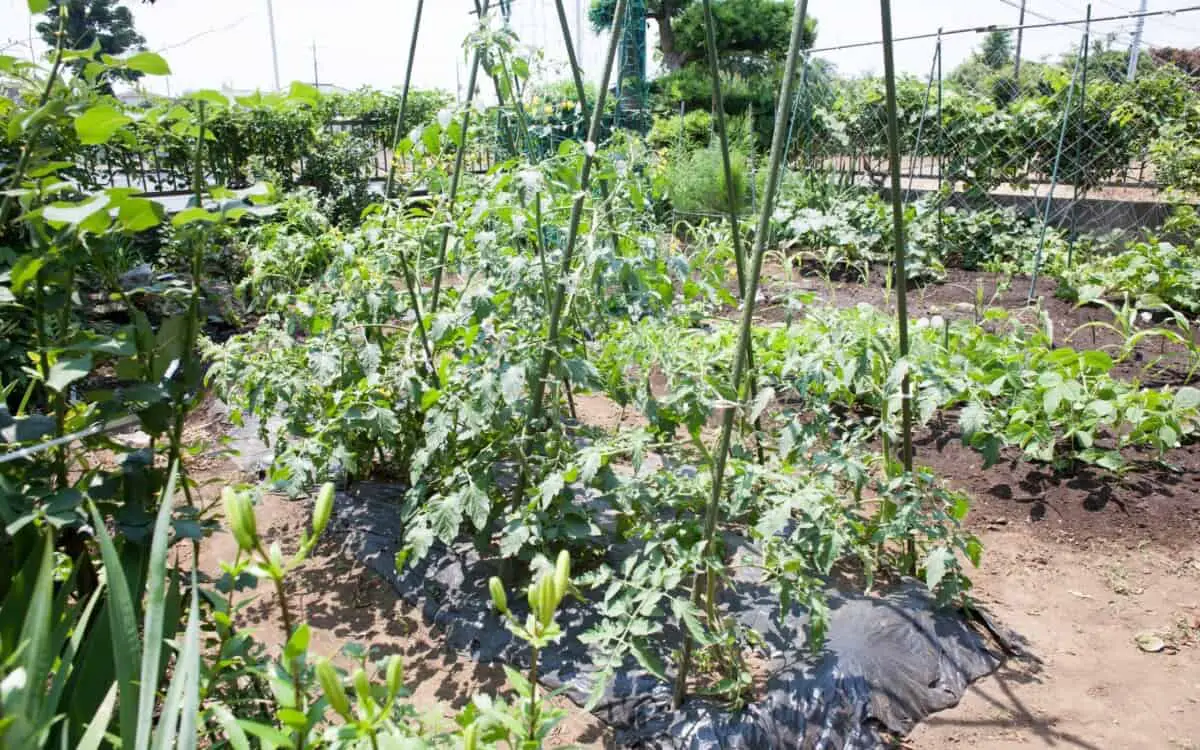Backyard farming is growing your food organically and sustainably in your backyard. Having your own backyard farm notably reduces your dependence on grocery stores and a delicate transportation system.
When backyard farming, you’ll be able to learn unique skills and grow food that is safe, healthy, nutritious, and sustainable. Besides, you can save a lot of money and reduce your monthly bill with this activity. It is also important that before you start backyard farming, you know what food to produce or grow while considering your local climate.
In this article, we will discuss backyard farming and what it contributes to human life. We will help you learn the goals of backyard farming and how to make a plan for it.
What Does Backyard Farming Consist of?
In today’s modern agriculture, vegetables, fruits, and other crops mainly rely on chemicals, enormous government subsidies, soil depleting techniques, and cheap oil. The current food system is now unhealthy and unsustainable.
Backyard farming, also called urban farming, consists of turning a part of your property into a mini or macro farm. This movement uses the concept known as permaculture. Permaculture is a method of organic gardening that uses nature as a tool to encourage the growth of vegetables, fruits, trees, and flowers.
Today’s agriculture and farming methods are fighting against nature. The term farming used in backyard farming doesn’t imply that one needs to grow crops on a large scale and sell them to the public. It rather emphasizes the concept of taking a positive approach to organic farming at home. This strategically improves the results, regardless of the amount one wants to produce.
In backyard farming, you can accomplish the following things:
- Grow all the salad ingredients for your family.
- Produce enough vegetable supply for a family of five for three months.
- Produce apples, pears, plums, melons, pumpkins, cherries, and any other vegetables you want to grow.
- Grow raspberries, blueberries, or blackberries.
- Raise chicken and other backyard animals for eggs and meat.
The term backyard farming means you are tending to your farm at home and apply a more systematic approach in growing your food. Some say it is just gardening, but it is organic gardening.
Backyard gardening has enabled many people to create their own sources of food, minimize their stress level, improve their mood, exercise, maintain good mental health, create relationships and a community, and so many more. Here are 12 reasons why backyard gardening is important.
The Goals of Backyard Farming
The goal of backyard farming is to achieve an organic and more sustainable way of growing your food in your backyard. With backyard farming, you will reap advantages and benefits compared to traditional gardening and will be able to achieve the following goals:
- Lower your grocery bills.
- Save time and effort per every food grown.
- Eliminate fertilizing, watering, and weeding.
- Eliminate rototilling, digging, and raking your property.
- Reduce waste by composting the things you are throwing.
- Achieve happiness when you start eating your produced food.
Benefits of Backyard Farming
Backyard farming is beneficial in so many ways. Below are some of the benefits of backyard farming.
1. Learn a Unique Skill
As humans don’t know what it takes to grow nutritious and healthy food, backyard farming helps educate you about growing your food. You can also teach your children about sustainable food and its health benefits throughout the process.
2. Grow food in a limited space
For backyard farming, you don’t need a lot of space to grow your food. There are multiple methods to help you achieve your goals, such as vertical, container, rooftop, and hydroponic gardening, which help utilize a small space. Backyard gardening helps you make use of your backyard while growing all the food you want.
3. Grow healthy food
Nothing can guarantee the healthiness of fast food and instant meals. These faster options may be convenient but can also cause serious health problems. Today’s generation faces health problems like diabetes, obesity, and high blood pressure due to unhealthy food.
Growing your food means you grow healthy and nutritious vegetables, fruits, and herbs. With backyard farming, you grow food that contains less cholesterol, is higher in fibers and other beneficial nutrients and vitamins. It is also another way to serve your family healthy and nutritious food.
By backyard farming, you’ll be able to grow high-quality food as well. With the left and right mass productions, food is often loaded with pesticides and chemicals to increase shelf life and production.
You have nothing to worry about if you are growing your food as you’ll be able to grow organic food without using any chemicals. You can control the growing conditions and the soil, water, and compost you want to use.
4. Grow sustainable food
Mass food production with traditional farming takes a toll on the planet. Aside from any other resources that farms are using, the food then has to be transported from the farm to the nearest store in your area, which requires burning a lot of fuel.
Thus, backyard farming reduces the carbon footprint of the food system by reducing fossil fuel consumption, making it a far more efficient use of water. Hydroponic gardening uses around 90% less water than conventional farming.
5. Save money
Healthy fruits and vegetables are far more expensive than readily available junk food. When growing your food, you can make a lot of money. You don’t need to spend a hefty amount to buy healthy and nutritious food.
If you are an avid consumer of vegetables, it may be a good idea for you to transform your backyard into a vegetable garden. This way, you will have your own source of produce and you will be able to partake in an activity that is good for your physical and mental health. To help you get started, here is a guide to turning your backyard into a vegetable garden.
How to Create a Backyard Farming Plan
Your food production plan is just a component of a bigger and more holistic backyard farming plan. It starts with an assessment of your situation, location, and food goals. Here are things to consider when creating a backyard farming plan.
1. Local Climate
Not all fruits, vegetables, herbs, and other food crops can grow in your area. While some vegetables and fruits can be planted anywhere in the world, you have to consider the biggest limiting factor of your area’s climate. Is it hot and dry, or cold and wet?
Whatever climate you live in, check your local state extension office for the plant varieties that adapt well to your environment. Your local climate is the first crucial factor before starting backyard farming.
2. Zones of Your Backyard Farm
Where are the best areas to grow food in your backyard? Remember traditional commercial farms usually grow one crop in straight lines, but the food production is different. If you are not tied by the constraints of large machinery, you can produce food in any area you want.
You can grow healthy and nutritious food in different areas on your property and plant as many different plants as you want. If you live on a little microstead, you should blanket your property with food production.
If you own a wide backyard, don’t spread your energy to the entire property. Food production is very important but can fit less flexible pieces of your backyard. When creating a layout for your food production, you should prioritize the following aspects:
- Trees and other perennials – these are the most permanent, so ensure you get their placement right. They also take very long to produce.
- Animals – they provide macronutrients that will be the backbone of your security plan. Although, they can have complex requirements, like water, food, and shelter.
- Annuals – they can only last one season, so their placement isn’t critical.
3. What Food to Produce
In self-sufficient backyard farming, you must remember the goal of food production. The goal is to produce food for your family that can suffice for months. These are the context worth keeping in mind:
-
The Macronutrients – Proteins, fats, and carbs
As mentioned earlier, it’s essential to know your local climate and what plants are native to it. You must know the food that can keep you alive if you’re doing backyard farming. Grow some food that can provide the basic nutrients your body needs, such as:
- Nut trees – an excellent source of fats and proteins
- Squash, beans, fruits, corn, sweet potatoes, potatoes – a great source of macronutrients
-
High-Value Produce
Expensive food is the next must-have for your backyard farming. Producing these kinds of food helps you save money. Here are some examples of such:
-
- Fruits, including watermelons, cantaloupes, honeydews, crenshaw, peaches, apricots, berries, plums, apple, and pears
- You could also include microgreens instead of duck eggs. Remember the goal of backyard farming is to help you become self-sufficient.
-
Vegetables, Herbs, Mushrooms, and Other Micronutrients
Micronutrients are foods with higher vitamins but not a high source of calories. Salad vegetables, lettuce, tomatoes, spinach, kale, water chestnut, onions, and peppers are great sources of micronutrients. Edible mushrooms and herbs fall in this category as well.
Micronutrients are beneficial to your digestive and immune system and contain enormous amounts of micronutrients that contribute to your overall well-being and health. These foods also keep your body well-oiled and your organs functioning properly.
Start small if you are still new to backyard farming. Incorporate small things one at a time in your backyard, and see what works and doesn’t. If you notice progress, slowly expand your backyard.
Conclusion
Learning about sustainability and self-reliance is essential. It educates you more about nature and what it can offer you. This understanding also allows you to appreciate what nature does for us, and in turn, enlightens you to do the right thing, which is living a green lifestyle as much as you can. One of the things that you can do to begin your sustainable lifestyle is growing your own food in your backyard.
Growing your food doesn’t have to be hard, even if you live in an urban area. Backyard farming helps you sustainably grow healthy and nutritious food for yourself and your family. With specific goals and backyard farming plans, you are a step closer to living a healthy and sustainable life.

